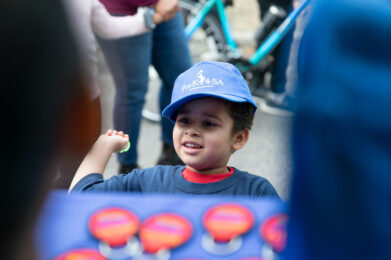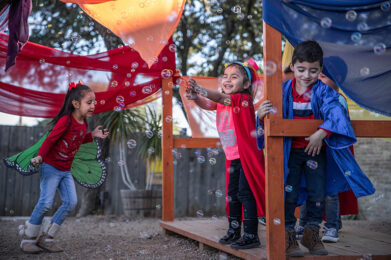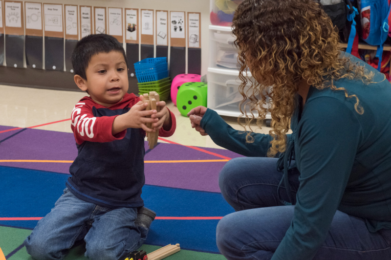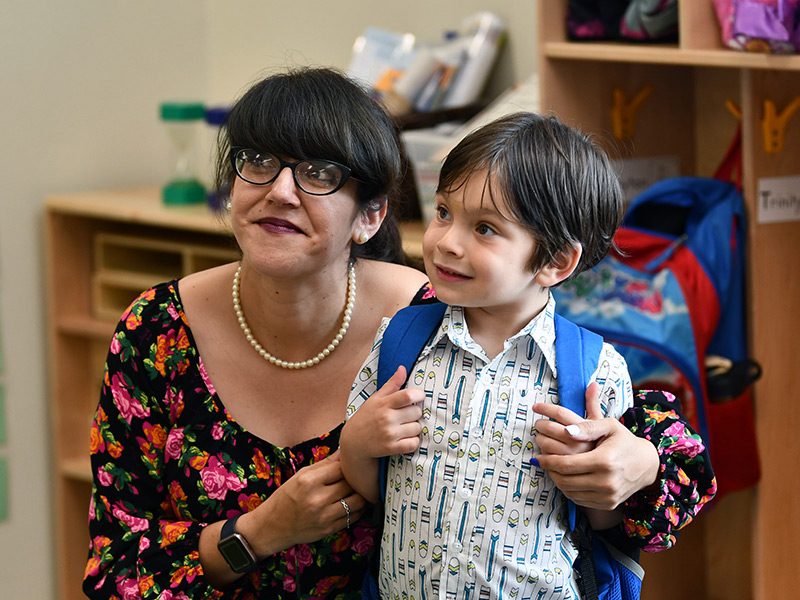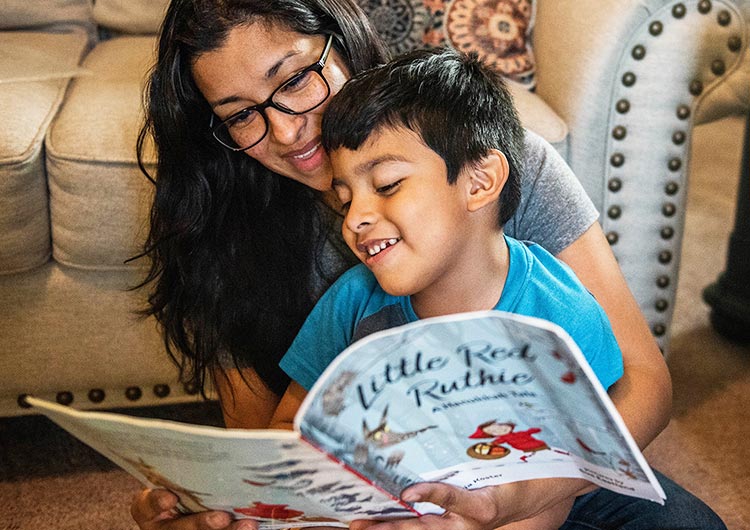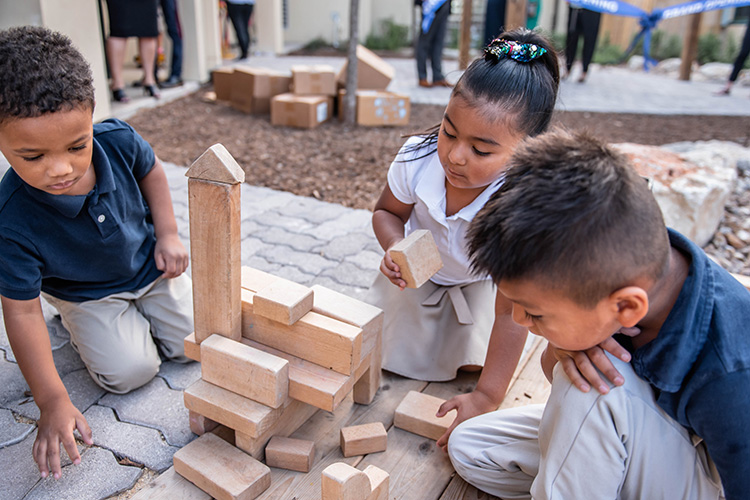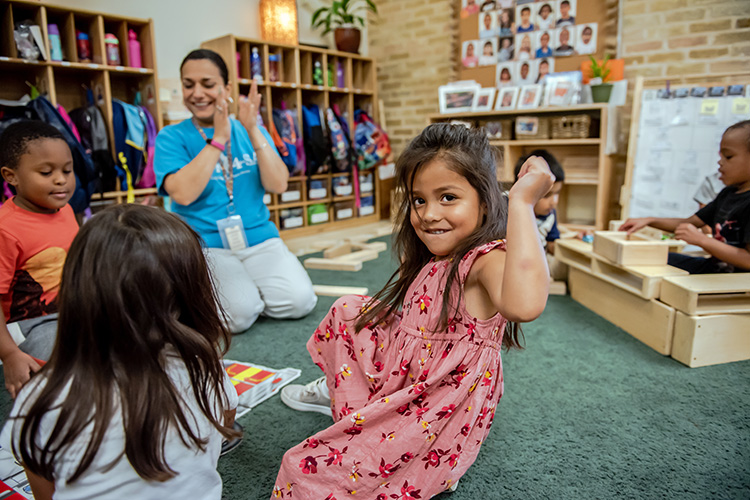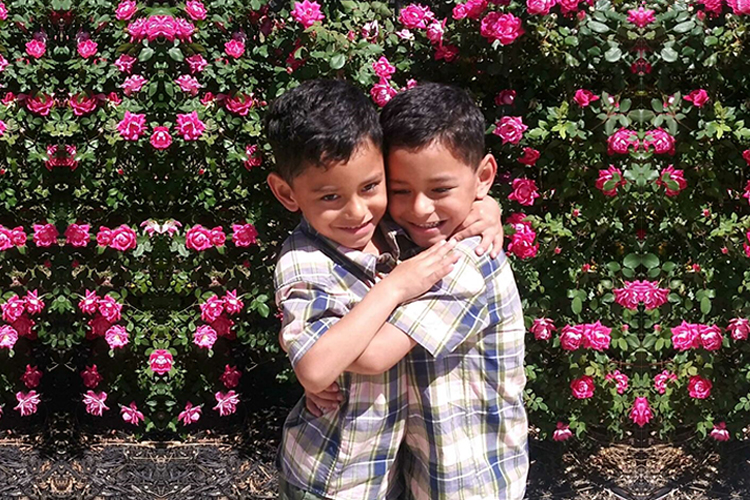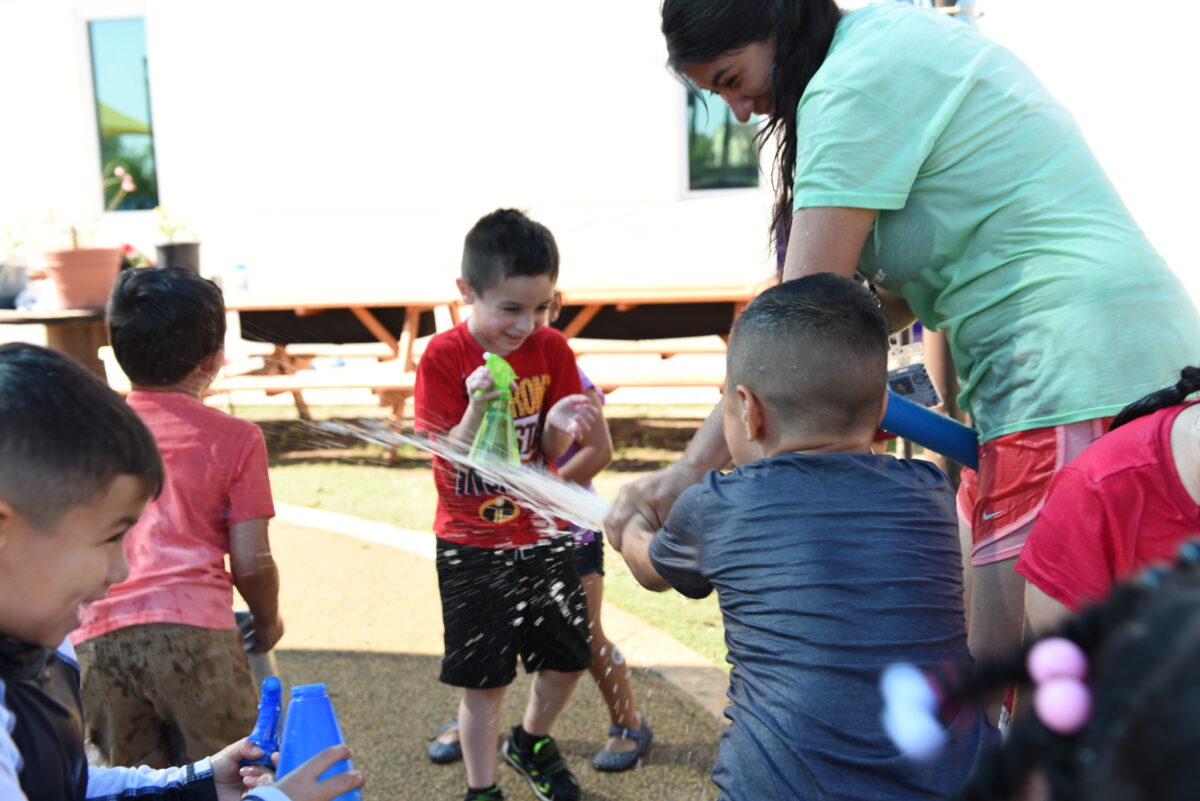Delia Ruiz was sure that her 4-year-old son, Dylan Granato, was more than ready to start Pre-K. He was a sharp, young boy who already knew his colors, shapes, and alphabet. She was excited to finally enroll her first child into Pre-K 4 SA.
But in a matter of two weeks, Delia received a call from the school asking her to meet to discuss a concern with her son.
Delia attentively listened as Mrs. Tamara Clary, Dylan’s teacher, and Kimberly Juarez, behavior specialist at the South Education Center, explained how Dylan came in with self-regulation issues, lacked communication skills, and would push and shove his peers.
“He was having a hard time, behavioral wise, with sharing and transitions, and a lot of things. So I thought, ‘Do I need to take him out of school?’ I started thinking that he was an issue!” Delia said. “I had mixed emotions and I didn’t know what to do.”
But what Delia soon realized was that Pre-K 4 SA personnel didn’t allow her to feel alone. Better yet, they acted with genuine personal interest and began to explain that Dylan was demonstrating characteristics of autism. He stayed in the standard classroom but the Pre-K 4 SA team created a plan of action to help Dylan.
Pre-K 4 SA is an inclusive environment, and part of the reason we use the HighScope curriculum is that even children with special needs are able to engage in the classroom and still be a part of it in an authentic way.
“Inclusion is very important for children with special needs because they learn from their peers. In a classroom, they get to be with children their age and have social situations through which they learn to interact with one another,” Clary said.
After the initial meeting, Delia implemented the recommendations provided by Pre-K 4 SA’s Social and Emotional Learning Team. At the same time, she educated herself about behavioral issues and autism. She researched online articles on the topics, sought out local groups, and even enrolled in a Parent Leadership Academy at Region 20.
Delia realized that consistency and teamwork are very important in order for Dylan to continue learning. Not only does she have to continue learning about these topics, but since Dylan has a close relationship with his grandparents, she also has to pass on this knowledge to them.
Delia’s determination to find a solution for her child underscores the vital role parents play in their children’s education. And when parents, teachers, and behavioral specialists work together, children thrive.
“The better educated a parent is about what is going on with their child, the better advocate they can become. As they move through different school systems and through life, they can help support their child,” said Maria Bayoumi, Pre-K 4 SA’s licensed specialist in school psychology.
Dylan’s mother, family, and Pre-K 4 SA staff noticed that in a matter of only six months he’s come a long way!
Josylnn Benitez, teacher assistant, and Elisandra Guajardo, a Trinity University graduate and candidate for a master’s in school psychology, assist Dylan on a daily basis with his class activities. They both make sure he follows a personalized schedule and they continuously help him strengthen his social and communication skills.
At the beginning of the year, Dylan struggled to make new friends but now every morning, his peers are anxiously waiting for him. Even though strengthening skill deficits is an ongoing process, Dylan is smart and learns very quickly.
When you mention Dylan’s name to the South Education Center staff members, you can’t help but notice their faces light up. His impactful experience here at Pre-K 4 SA has touched so many and his experience demonstrates the importance of inclusion.
“We are lucky to have him and hope Dylan stays connected with us because we know he will achieve great things in life,” Benitez said.
Currently, Dylan is undergoing evaluations for autism; however, Pre-K 4 SA’s focus is the identification and targeting of skill deficits, and providing meaningful inclusion instead of solely focusing on obtaining a diagnosis label. We want children, like Dylan, to be ready for Kindergarten and to excel for the rest of their lives.
